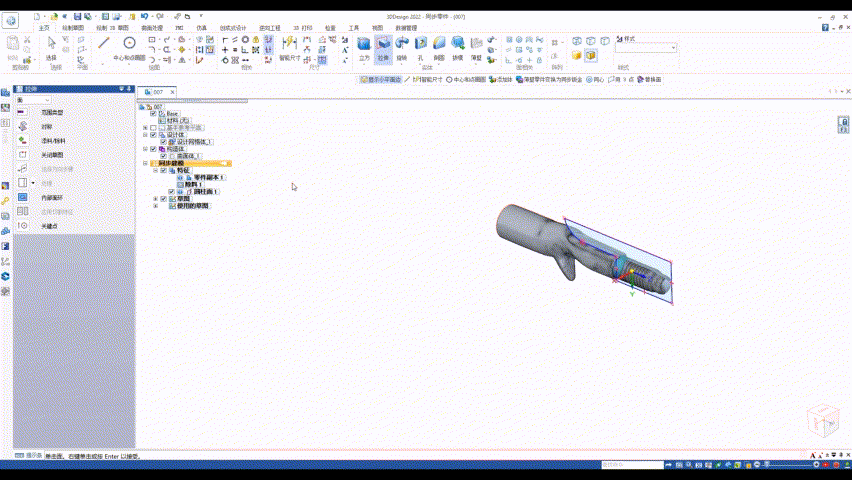For fishing enthusiasts, replacing accessories of a fishing rod on a regular basis is necessary since the outside of a rod that has been used for a while will have been exposed to salt, moisture, filth, etc., which can cause the accessories to corrode and rust. Directly purchasing is an excellent option, but components like reel seats, have size restrictions and almost certainly don’t match the rod.
This article will offer a new idea for customizing the seat for a fishing rod reel utilizing 3D scanning and printing. With easy-to-use 3D software, you can create the perfect design for your needs.
The main structure of a fishing rod is reel seat, rod body and reel. The reel seat is the coupling device that fixes the reel to the rod. Our high-quality 3D printing process will ensure reel seat can be custom sized to hold the fishing reel firmly on the rod. It is lightweight, easily adjustable, and comfortable in hand.
Table of Contents
3D Laser Scanning on the Rod
In order to successfully build an accurate reel seat model that fits the rod, 3D data of the rod needs to be obtained first. 3D laser scanning is the preferred method because the surface of this rod has some black and reflective materials. Shining 3D EinScan HX Hybrid Light Source Handheld 3D Scanner has a laser scanning mode with wide adaptability to the material and can easily acquire 3D data of this fishing rod.

Stick on the markers to scan the whole fishing rod

Scanning result of the rod in EXScan HX software
Design the Reel Seat Model in Solid Edge
The next important step is to import the scanned model into the CAD software Solid Edge Shining 3D Edition for post-processing and design. Definitely, you may choose similar software such as Geomagic Essentials. Combining scanner and 3D software together is a powerful solution to start from 3d scan, to data processing & modeling, then bring into CAD environment. In this regard, Shining 3D offers a wide selection of bundles that you may want to learn more about.
 Scanned data processing and design the reel seat in Shining 3D design
Scanned data processing and design the reel seat in Shining 3D design
The advantage of Solid Edge is that it can be used for both forward and reverse design. The software also includes a variety of modeling methods, which can be selected according to the requirements of the different parts and the modeling scenario. In this case, the synchronous modeling method was chosen for ease of operation. Finally, we exported the designed model as STL file for 3D printing.

Final design
3D Print and Assemble Reel Seat Parts
The high precision resin 3D printer AccuFab-L4K and the Shining 3D DM12 resin printing material were used in this application. For AccuFab-L4K, the IT7 level of printing accuracy ensures that the print size is consistent with the design size. Furthermore, due to its great precision and flexibility, the DM12 material is suitable for printing separate models, assuring precise model printing and good model fit.

3D printed parts of the reel seat
The final step is to assemble the parts and the custom-made fishing rod wheel holder is complete.

All parts to be assembled

Finished product
The 3D digital one-stop solution provided by Shining 3D can fully meet the needs of customers, circumventing the pain point of a single technology can not achieve effective closed-loop, and will certainly be applied to more fields in the future.





